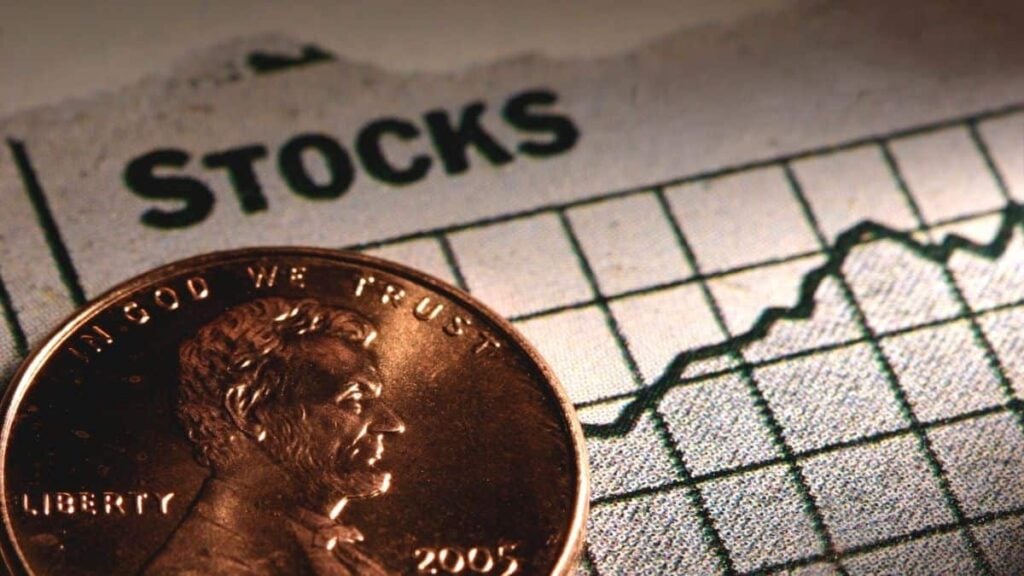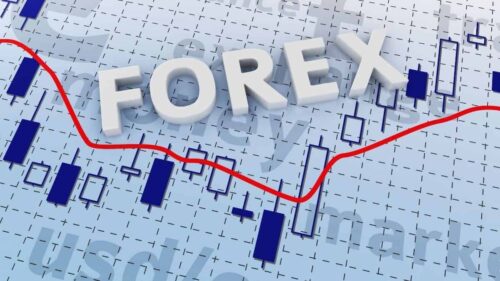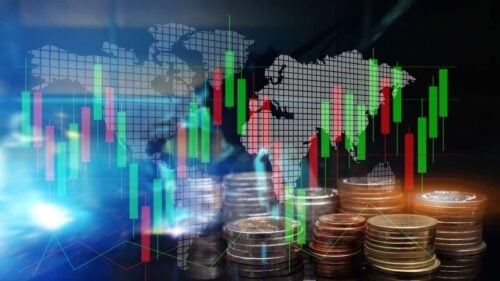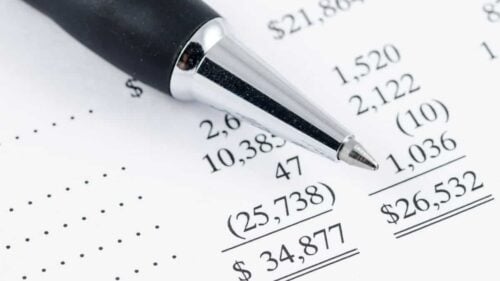Penny stocks and forex are two very different asset classes. If there is one thing they have in common though, it’s the fact that if you start with a relatively small amount of money, they are two of your best options.
Let’s have a more in-depth look at both these trading instruments to see if one is sometimes a better alternative than the other.
What you should know about penny stocks
Before you start trading in penny stocks, make sure you read this section so you will at least know the basics.
What are penny stocks?
 Penny stocks are generally issued by businesses that are small players in a particular market that do not have large amounts of capital invested in them. As the name indicates, these stocks are cheap.
Penny stocks are generally issued by businesses that are small players in a particular market that do not have large amounts of capital invested in them. As the name indicates, these stocks are cheap.
They typically sell for less than $5 per share, sometimes even for less than $2. If you don’t have a large amount to start trading with, therefore, you will undoubtedly find them very appealing.
How do people trade penny stocks?
While some penny stocks are traded on security exchanges such as the NYSE, most of them are quoted on an “over-the-counter” basis (via OTC Bulletin Board or Pink Sheets). This is a very important fact to keep in mind because pink sheet traded stocks do not have to register with the SEC (Securities and Exchange Commission).
It means that there are fewer regulations than other stocks when it comes to the amount of public information they have to provide. This creates a situation where unscrupulous companies often tout these stocks with information that is, to say the least, inaccurate.
Therefore, before you invest a single dollar in a penny stock, you spend time researching the company and its future outlook.
If your research leads you to the belief that a particular penny stock’s price is about to surge, your next step is to find a broker that sells this stock. In this regard, it’s important to look for a broker that has a proven track record and who does not charge a per-trade commission.
You can quickly make (or lose) a lot of money
Let’s say you buy 500 stocks in Company XYZ for $2 each. Your total investment is, therefore, $1,000. If the stock price of Company XYZ increases by $1 a share virtually overnight, you will make a profit of 500 x $1, i.e. $500.
This represents a massive 50% return on your initial investment.
The reverse is, however, also true. If the company’s stock price drops by $1, you will lose $500 or 50% of your investment just as quickly.
How to protect your capital when trading penny stocks

There is no way to completely eliminate the risk when trading penny stocks, but there are a few ways to reduce the risk:
Research. Do your homework. Make sure you know as much as possible about the company, its history, its products, and its future outlook before buying its stocks.
Diversify. Let’s say you have $900 in your account, do not invest all of it in a single penny stock. Buy at least three of these stocks. That way, a sharp drop in the price of one of them will never virtually wipe out your capital.
Use a stop loss. Before you open the trade, decide what is the biggest percentage loss you are prepared to tolerate before getting out. Set up a stop loss at that level, and terminate the trade if the price reaches that level.
Just remember that it might sometimes not be easy to get out of a penny stock trade when things go south because there won’t necessarily be enough buyers.
What you should know about forex
The forex market is vastly different from the penny stocks market. Continue reading to find out more:
What is forex?

The term ‘forex’ stands for “foreign exchange.” Trading forex means that you are effectively buying one currency and selling another one.
Let’s say your research leads you to the belief that the USD is about to appreciate sharply against the GBP over the next week. You will then buy the USD/GBP currency pair.
How does one trade forex?
Where people trade penny stock over the counter, one can trade forex electronically. There isn’t any centralized market to execute all global forex trades.
The forex markets are open 24/5, i.e. 24 hours per day from Monday to Friday. These markets do, however, close on public holidays.
Forex markets are tightly regulated, similar to the major stock exchanges. This means that information is much more freely available than in the case of penny stocks.
There can in fact be such a vast amount of information at your disposal that it can lead to “analysis paralysis,” where you don’t know what to do with all that (sometimes conflicting) information.
How much money can you make trading forex?

The main point to keep in mind here is that forex trade is highly leveraged. This simply means that to do a $100,000 trade in. For example, the USD/GBP you might need as little as $1,000 in your trading account, or the “margin.”
Let’s say you open a trading account with a broker and deposit $1,000. You do your research and conclude that the USD/GBP rate is going to surge within the next few days, so you buy USD/GBP to the value of $100,000.
Now let’s also say the USD/GBP rate does in fact increase by 1% overnight. This would mean that your $100,000 trade is now worth $101,000, giving you a profit of $1,000. You would make 100% profit on the amount of $1,000 you initially risked!
Of course, if the GBP/USD rate should actually drop by 1%, you would lose $1,000 . . . your whole trading account.
How to protect your capital when trading forex
As with penny stocks you can reduce the risk of an individual trade by doing the following:
Research. There is a massive amount of information available on the internet for virtually every currency pair you can think of. Do your homework.
Diversify. Don’t put all your eggs in one basket. Never risk all your money on one trade. Most professional traders won’t even risk anything near 10% of their funds on a single trade.
Use a stop loss. Decide how much pain you are prepared to suffer and if the currency pair goes against you by that margin, get out of the trade.
The bottom line

Penny stocks and forex are both potentially high-return, high-risk trading instruments. Forex is, however, typically more leveraged than the former.
This means that both profits and losses in forex can be very high. Forex markets have much better regulation than in the case of penny stocks.
Penny stocks are a more suitable option if you have the time and inclination to do your own research and you are not easily misled by sales talk.


 Tags:
Tags:










